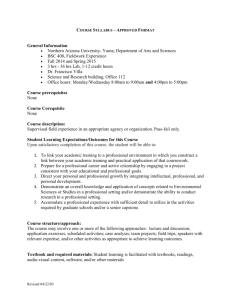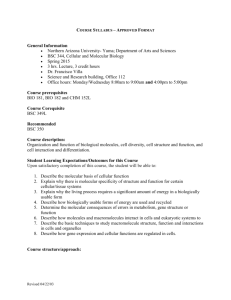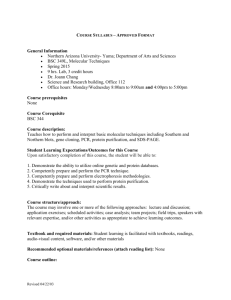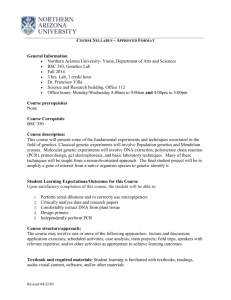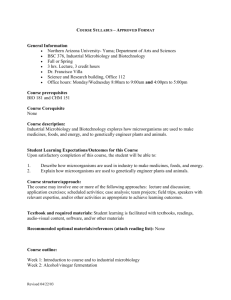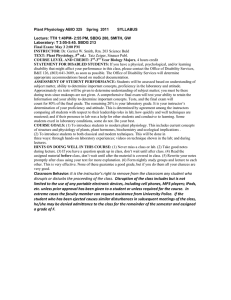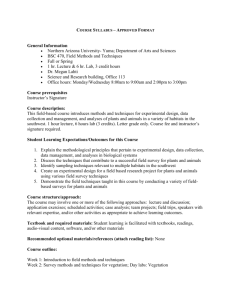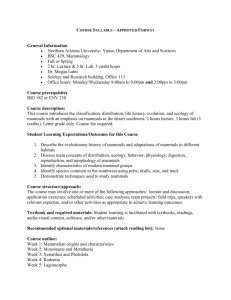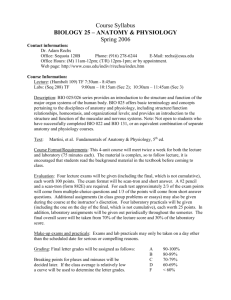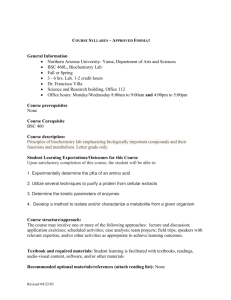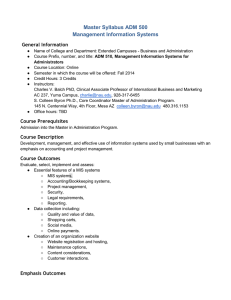BSC 444 Human Physiology Master Syllabus
advertisement
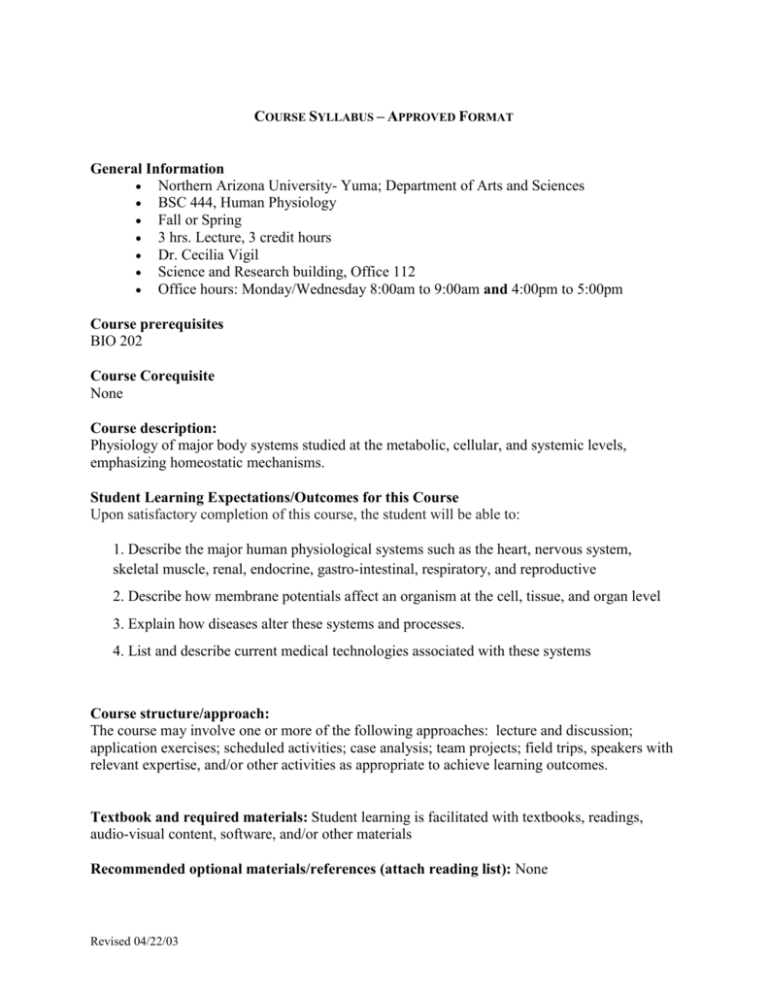
COURSE SYLLABUS – APPROVED FORMAT General Information Northern Arizona University- Yuma; Department of Arts and Sciences BSC 444, Human Physiology Fall or Spring 3 hrs. Lecture, 3 credit hours Dr. Cecilia Vigil Science and Research building, Office 112 Office hours: Monday/Wednesday 8:00am to 9:00am and 4:00pm to 5:00pm Course prerequisites BIO 202 Course Corequisite None Course description: Physiology of major body systems studied at the metabolic, cellular, and systemic levels, emphasizing homeostatic mechanisms. Student Learning Expectations/Outcomes for this Course Upon satisfactory completion of this course, the student will be able to: 1. Describe the major human physiological systems such as the heart, nervous system, skeletal muscle, renal, endocrine, gastro-intestinal, respiratory, and reproductive 2. Describe how membrane potentials affect an organism at the cell, tissue, and organ level 3. Explain how diseases alter these systems and processes. 4. List and describe current medical technologies associated with these systems Course structure/approach: The course may involve one or more of the following approaches: lecture and discussion; application exercises; scheduled activities; case analysis; team projects; field trips, speakers with relevant expertise, and/or other activities as appropriate to achieve learning outcomes. Textbook and required materials: Student learning is facilitated with textbooks, readings, audio-visual content, software, and/or other materials Recommended optional materials/references (attach reading list): None Revised 04/22/03 Course outline: Week 1: Introduction and Fundamental Concepts of Physiology Week 2: Chemistry and Cell Biology Week 3: Membrane Physiology Week 4: Nerve and Muscle Cell Physiology Week 5: Nervous System Week 6: Nervous System Week 7: Heart Week 8: Circulation Week 9: Body Fluids and the Kidney Week 10: Body Fluids and the Kidney Week 11: Blood Cells, Immunity, and Coagulation Week 12: Respiration Week 13: Gastrointestinal System Week 14: Metabolism and Temperature Regulation Week 15: Endocrinology Week 16: Reproduction Assessment of Student Learning Outcomes Methods of Assessment: In-class exams, homework, in-class activities, research paper, and/or presentations. Timeline for Assessment: Over the course of the semester Grading System: Letter grades for the course will be determined based on the percentage of the total points as follows: 90-100% A Excellent 80-89% B Good 70-79% C Average 60-69% D Lowest passing <60% F Failure Course policy: Retests/makeup tests: No make-up exams or re-tests except for what the instructor may deem as extenuating circumstances. Attendance Policy: Under NAU Policy, students are expected to attend every session of the class in which they are enrolled. Statement on plagiarism and cheating: DON’T CHEAT! Revised 04/22/03 Please refer to the NAU Student Handbook policy statement on Academic Integrity. Academic honesty does not allow "plagiarism — knowingly representing the words or ideas of another as one's own" (2005, Undergraduate General Academic and Graduation Policies). If your instructor determines that you are guilty of plagiarism he deserves the right to give you a zero on the alleged assignment up to failing the course in question. All incidents regardless will be reported to the university. University policies Attach the Safe Working and Learning Environment, Students with Disabilities, Institutional Review Board, and Academic Integrity policies or reference them on the syllabus. See the following document for policy statements: http://www4.nau.edu/avpaa/UCCPolicy/plcystmt.html. Your instructor reserves the right to make any changes to the course policies, schedule, or any other aspect of the class as he sees fit. Revised 04/22/03
